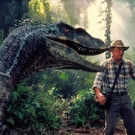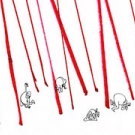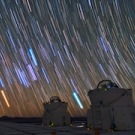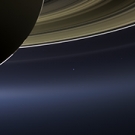Articles Tagged with #science
-

Phenomena Understood
The Wayback Machine
by Rick PaulasHow nostalgia works and why social media may destroy it altogether, or restore it to its original purpose.
-

Explainers
The Art and Science of Forgetting Everything
by Rosecrans BaldwinA conversation with Sarah Hepola, author of the bestselling Blackout, about investigating the worst kind of memories—those you never had.
-

Dimensions in Medicine
My Letter From Oliver Sacks
by David FriedmanMigraines, 3D magic, and an unlikely correspondence from one “incredibly stereoscopic person” to another.
-

The Doctor Is In
Fight or Flight
by Erica BerryA near-death experience makes this week’s International Asteroid Day a little more tricky to celebrate.
-

Phenomena Understood
Our Dino Love Will Never Die
by Ryan BrittDinosaurs haven’t been super-popular for 65 million years—it only feels that way. Fans and experts explain our obsession with dead monsters.
-

Explainers
A Recipe for Disasters
by Jason NovakCalculating the probable dates for very bad things—a catastrophic solar megastorm; Seattle destroyed by earthquake—that are likely to occur.
-

Opinions
What Think-Piece Writers Get Wrong About Lobotomies
by Matt SeidelThe web is full of pundits looking to turn every topic into think-bait. One writer commits himself to thinking much, much deeper.
-

Books on Books on Books
Binge Reading Disorder
by Nikkitha BakshaniThe typical American consumes more than 100,000 words a day and remembers none of them.
-

Spoofs & Satire
Gods and Kings and Middle Managers
by Ross BurnsRecent astronomical discoveries have expanded our understanding of the universe—and messed up godhead performance reviews.
-

Dispatches
My Time of Not Dying
by Bryan VanDykeCall it Kreider’s Law: You can’t be grateful to be alive your entire life. Especially when there’s an arms race going on inside your head.
-

Science in Fiction
Do You Believe in Ghosts?
by Benjamin WinterhalterIgnore the critics: Christopher Nolan’s Interstellar is not only a serious, complex comment on space policy, it’s a heartbreaking, philosophical look at the value of time.
-

Spoofs & Satire
This Will Be the Year That Was
by Michael RottmanIf you can’t wait to find out what 2015 will bring—from John Galliano’s Cosby sweaters to Jenny McCarthy getting polio—wait no longer. (Spoilers ahead.)